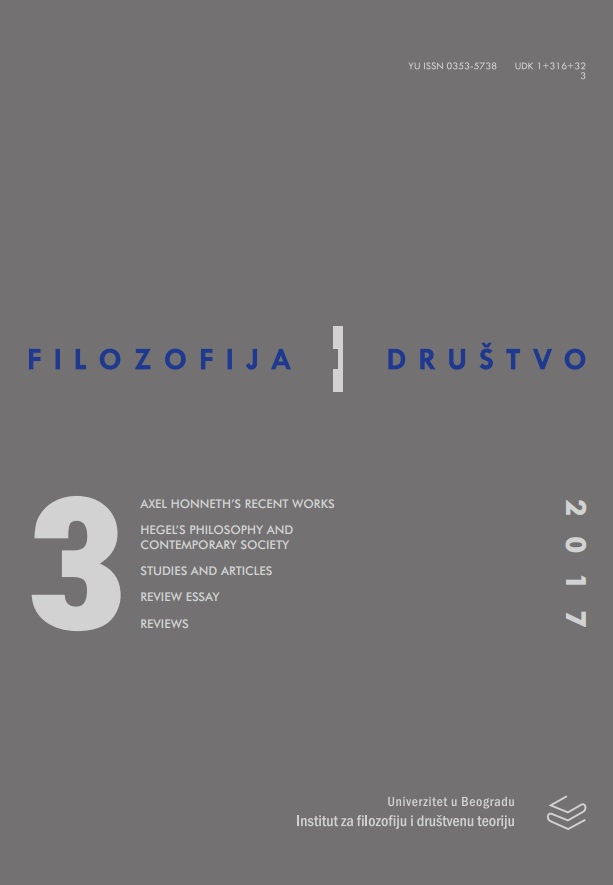Affektive Anerkennung und soziale Freiheit – psychoanalytische und normativ-rekonstruktive Begründungslogik der Gesellschaftskritik im Werk von Axel Honneth
Affective Recognition and Social Freedom – the Psychoanalytic and Normative-Reconstructive Logics of Grounding Social Critique in Axel Honneth’s Work
Author(s): Werner L. EulerSubject(s): Ethics / Practical Philosophy, Social Philosophy
Published by: Institut za filozofiju i društvenu teoriju
Keywords: Honneth; Hegel; Freud; recognition; social critique; law; self-consciousness; desire; negation; freedom
Summary/Abstract: The task of this paper is the following: how should one explain and solve the the ory-immanent tension in Honneth’s recent works, i.e. the tension that reflects the difference between the concept of social freedom (a concept grounded in Hegel’s social philosophy methodologically articulated through normative recon struction) and the concept of ‘affective recognition’ (which has replaced the earlier normative concept) – in other words: is there a certain logically-factually grounded path from the question of subjective-individual recognition to the intersubjective recognition of free (legal) subjects in society? My thesis is the fol lowing: this supposed tension is a pseudo-tension. It loosens up – without com pletely resolving itself – as soon as we combine the two logics of grounding critique that we find in Honneth. However, unrelated to my claim about the pseu do-nature of the mentioned tension, the psychoanalytic mode of grounding critique is erroneous, since one cannot directly arrive at collective components of society starting from the empirical constellation of individual consciousnesses. The relation between subjective individuality and objective (intersubjective) generality is an objective contradiction (as opposed to a purely theoretical tension). If we still decide to pursue this path of grounding critique, we we inadvertently introduce a psychologistic approach into social theory. Such an approach can be found in Honneth’s theory of intersubjective (normative) recognition as well.
Journal: Filozofija i društvo
- Issue Year: 28/2017
- Issue No: 3
- Page Range: 415-434
- Page Count: 20
- Language: German

